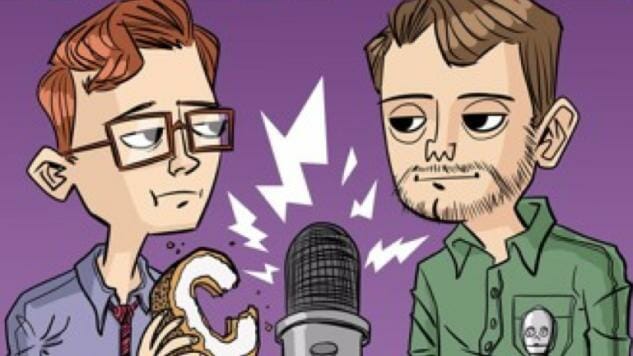Blank Check and the Intersection of Comedy and Criticism

The climax of Ratatouille, Brad Bird’s perfect Trojan Horse about the artist’s struggle, centers on a piece of criticism written by the film’s villain, Anton Ego, after his hard heart is melted by a deceptively simple dish prepared for him by a rat. (It really is an insane movie the longer you think about it.) “We thrive on negative criticism, which is fun to write and to read,” he says. “But there are times when a critic truly risks something, and that is in the discovery and defense of the new.” It’s a simple but important tether between two practices that have long been regarded as being at odds.
Ratatouille was recently unpacked in much greater detail by the podcast Blank Check with Griffin & David, whose hosts—film critic David Sims of The Atlantic and actor/comedian Griffin Newman of The Tick—review the filmographies of directors with early successes that allowed them untethered creative freedom for the rest of their careers. Think Spielberg, Shyamalan, the Wachowskis, etc. Alongside their producer, Ben Hosley, they’re currently tackling the career of Brad Bird before wrapping it up with Incredibles 2.
Their insistence that this is a “no bits, pro Smits” podcast is only half true. The hosts may love Jimmy Smits, but there are a dizzying amount of bits on the show—often to the chagrin of one or more hosts—from the constantly evolving list of nicknames Griffin uses to introduce Producer Ben, to hypotheses on how Paul Verhoeven might trick you into giving him money for a movie about Nazis, to some, let’s just say, involved ad copy with characters that include Al Pacino’s character from Insomnia who, it’s been established, sleeps on the floor of the studio during every episode whether you hear him or not.
But Blank Check is equally and genuinely rigorous in trying to establish a realistic narrative for a director’s career, identifying where they might go astray and how they get back on track, thinking of quick fixes for glaring problems, and bringing their impressive knowledge of the context of a film’s creation to the table. Each episode leaves me wondering which category iTunes should list it under.
There has always been an extremely uneasy alliance between the creation of art and the criticism of it, particularly in comedy, where bitterness is more frequently said to be at play. A lot of people also feel that in criticizing a piece of comedy, you’re missing the point: it’s a joke. This, I think, undercuts a comedian’s assertion that they would actually like their work to be taken seriously. When one does the other’s job successfully—say, when Roger Ebert wrote Beyond the Valley of the Dolls—it was often referenced as a way for him to better understand how he wrote criticism, as opposed to a separate creative expression. This distinction, the idea that you should pick a lane when it comes to these two things, always seemed a little defensive to me—a way to write off negative criticism as illegitimate, while leaving room to embrace positive criticism as affirmational.
-

-

-

-

-

-

-

-

-

-

-

-

-

-

-

-

-

-

-

-

-

-

-

-

-

-

-

-

-

-

-

-

-

-

-

-

-

-

-

-








































